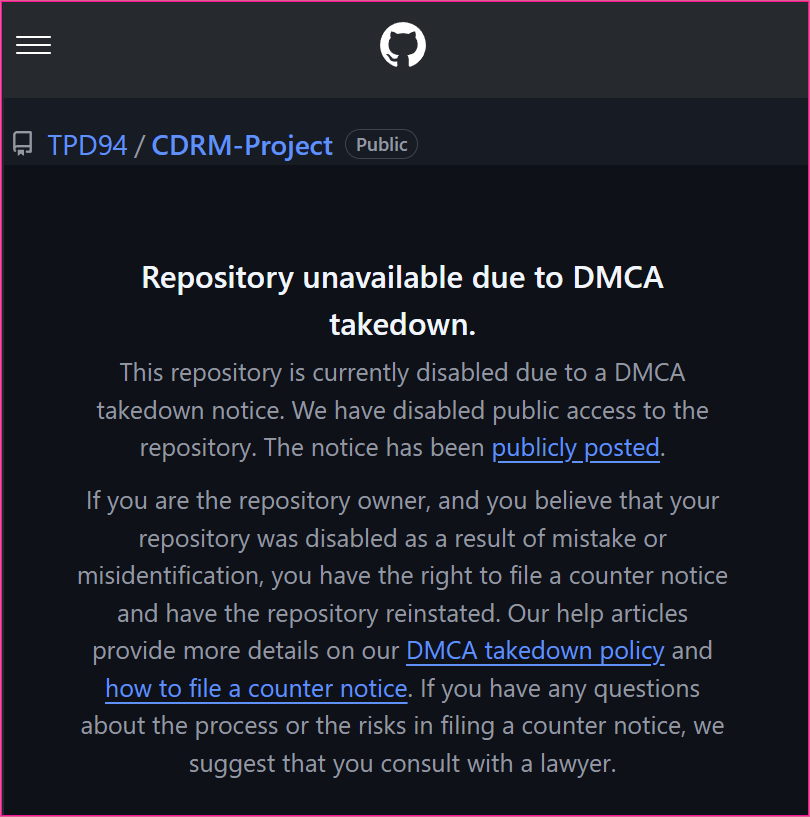
DRM-Free OnlyFans Downloads Lead to Widevine Project Removal from GitHub
- A recent GitHub controversy centers on a repository allegedly optimized for circumventing DRM on OnlyFans.
- Fenix International Limited, the parent company of OnlyFans, filed a complaint saying the repository was infringing.
- Also, the company provided information about the repository owners and contributors.
The latest controversy surrounding Widevine involves a DMCA takedown by Fenix International Limited, the parent company of OnlyFans, targeting a GitHub repository known as "CDRM-Project."
This repository allegedly hosted code specifically designed to bypass Widevine and remove Digital Rights Management (DRM) protections from video content on OnlyFans.
According to Fenix's DMCA complaint, the repository included code and instructions to impersonate a video player, decrypt DRM-protected content, and remove the Widevine protections before converting the files into accessible MP4 formats.
GitHub, adhering to its policy of notifying repository creators before suspension, contacted the operators of the CDRM-Project repo, as well as six related forks. Nonetheless, the entire repository and its forks were ultimately removed after Fenix argued that the entire codebase infringed and should be taken down.
GitHub’s decision reflects the strength of Fenix’s anti-circumvention claims under the Digital Millennium Copyright Act (DMCA). Anti-circumvention laws prohibit the creation, distribution, or use of tools designed to bypass copyright protection measures like DRM.
An unusual aspect of this case is Fenix’s detailed response to GitHub’s request for contact information for the infringers. Unlike typical takedowns where rightsholders claim ignorance about a perpetrator’s identity, Fenix provided information about the repository owners and contributors.
This may suggest the possibility of further legal action and raises questions about the extent to which GitHub’s users are exposed to enforcement mechanisms.
DRM systems have long been a key tool for protecting digital content, and Google’s Widevine DRM is one of the most widely used solutions. Integrated into billions of devices—including browsers, smartphones, and smart TVs—it aims to prevent unauthorized distribution of digital content.
Widevine is deeply embedded across modern digital platforms. Used extensively by streaming giants like Netflix, Disney+, and Amazon Prime Video, it secures billions of media streams globally. However, its near-ubiquity does not make it immune to exploitation.











